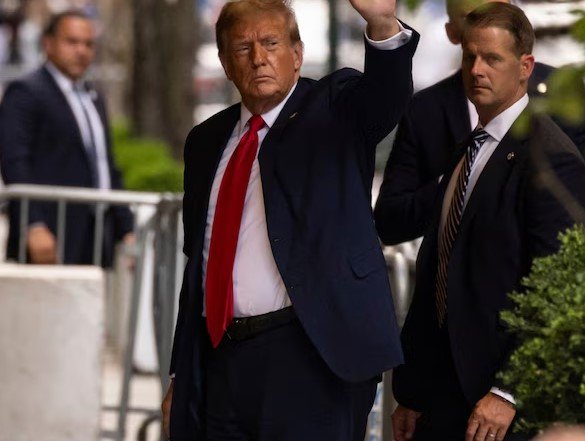In a historic turn of events, a former U.S. President faces the judiciary, marking a significant moment in American legal and political history. This case, which involves allegations of falsifying business records, has captured the nation’s attention and raises questions about the integrity of the electoral process and the accountability of public figures.
The Charges and the Case
The trial centers around accusations that the former President falsified business records. It is alleged that these actions were part of an effort to conceal a scandal, with implications that it could have unlawfully influenced an election. The courtroom has become a battleground for legal experts and a focal point for a divided public.

The prosecution has laid out a case that paints a picture of deception and manipulation. They argue that the accused engaged in a deliberate scheme to mislead, driven by political ambition and personal gain. The defense, however, maintains that the charges are unfounded and politically motivated, aiming to discredit the former President in the eyes of the public and the law.
The Political Implications
The trial does not exist in a vacuum; it is deeply entwined with the political fabric of the nation. With the former President being a significant figure in the political arena, the outcome of this trial could have far-reaching consequences for the political landscape.
Supporters of the accused have rallied, claiming that the trial is an attack on their leader and an attempt to undermine their political movement. Opponents, however, see the trial as a necessary step towards transparency and justice, holding a powerful individual accountable for their actions.
The Historical Context
This trial is unprecedented. Never before has a former President been brought to trial on criminal charges. The event is set against a backdrop of historical legal precedents and the ongoing debate about the extent of presidential immunity and accountability.
The case has prompted a reexamination of the legal protections afforded to presidents and former presidents. Legal scholars and historians alike are watching closely, as the decisions made in this trial could redefine the boundaries of presidential conduct and the consequences thereof.

Comments